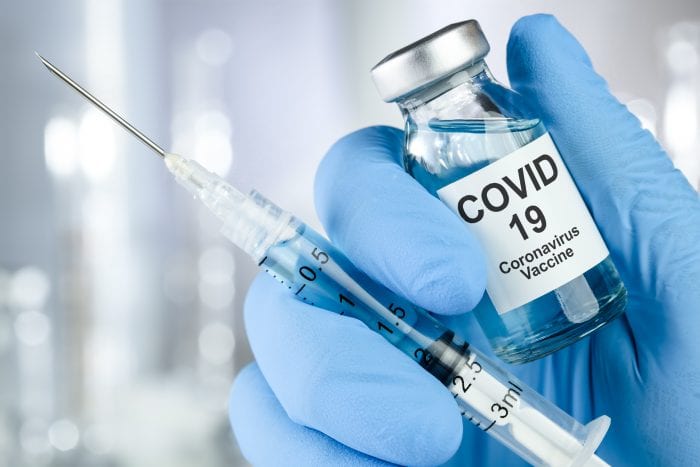Cautious COVID optimism for youth vaccine, Merck treatment
Amid a steady drumbeat of worry and anxiety, the last week produced several potential encouraging signs in the battle against COVID-19.
Pfizer recently applied for emergency use authorization for a vaccine for children who are five to 11 years old, a group that has returned to school but that hasn’t yet had access to any vaccines.
Pfizer will get early approval as “long as the [Food and Drug Administration] has enough data,” said Dr. Sunil Dhuper, chief medical officer at Port Jefferson’s St. Charles Hospital. “They’re going to get early approval.”
A vaccine would be a welcome defense for children who now constitute anywhere between 25% and 35% of infections, Dhuper said.
Vaccinations for those over the age of 12 have helped drive down an infection rate that had climbed toward the end of the summer.
In recent weeks, the percentage of positive cases in Suffolk County has continued to decline, with the seven-day average falling to 3.2% as of Oct. 10, according to data from the Suffolk County Department of Health.
While health officials and pharmacies continue to administer booster doses of the Pfizer BioNTech vaccine, Johnson & Johnson has applied for Emergency Use Authorization for a booster dose that enhances the immune response to the virus.
As of now, people who received J&J’s original vaccine are not eligible for the Pfizer BioNTech booster, according to Dr. Sritha Rajupet, director of Population Based Health Initiatives and director of the Post-COVID Health Clinic at Stony Brook Medicine,
Meanwhile, Merck recently produced a drug in pill form called Molnupiravir that reduced hospitalizations and death by 50% when taken within the first five to eight days of developing COVID symptoms.
The drug didn’t completely prevent hospitalizations or death but greatly reduced it, generating excitement in the health care community. Merck applied earlier this week for emergency use authorization for Molnupiravir.
“It’s a great study,” Dhuper said. “We are very delighted that there is going to be another alternative” treatment for patients.
Up to this point, hospitals, urgent care centers and doctors have not had access to an outpatient drug.
When given at the onset of symptoms, Molnupiravir acts like the flu drug Tamiflu, helping to reduce the symptoms and health challenges associated with COVID-19.
This medicine could help reduce hospitalizations, providing relief to patients and enabling hospitals to manage their resources better, Dhuper said.
Doctors remained cautiously optimistic about the ongoing battle against COVID-19. Dhuper added that the real challenge for the community would come within the next three to four weeks, during which time hospitals and count officials will watch carefully for any increase in infections in between when children return to schools and the FDA approves any vaccine for this age group.
Long haul issues
While health officials were pleased with the potential availability of additional medical tools to prevent or treat COVID-19, they said numerous residents continue to battle long haul COVID.
Described as persistent symptoms that can develop four to eight weeks after the initial symptoms, long haul COVID can include fatigue, brain fog, shortness of breath, palpitations and a wide range of other neurological discomforts.
Doctors said 10 to 35% of people who contract COVID can develop these longer-term symptoms.
Long haul COVID-19 remains a “big concern,” Dr. Gregson Pigott, commissioner of the Suffolk County Department of Health Services, wrote in an email. “We remind people who remain unvaccinated that people of all ages have suffered from long-range symptoms” from the virus. “We don’t know yet if these symptoms will be limited or if they may develop into chronic life-long conditions. We will be looking at the literature to learn more.”
Dhuper said some of those with long-haul symptoms feel as if they are “continuously living with an illness, almost like a flu.”
Such extended discomfort has an extended impact on the quality of life.
Treatment of these long-haul symptoms “is tailored to the patient’s specific symptoms,” Stony Brook’s Rajupet described in an email. “Identifying the organ systems involved and the symptoms or autoimmune conditions that have manifested are essential to developing a treatment plan.”
Rajupet suggested that leading a healthy lifestyle, with balanced sleep, nutrition and exercise can help in recovery. Stony Brook encourages this approach not only in the management of long-haul symptoms, but also for a patient’s overall health.







